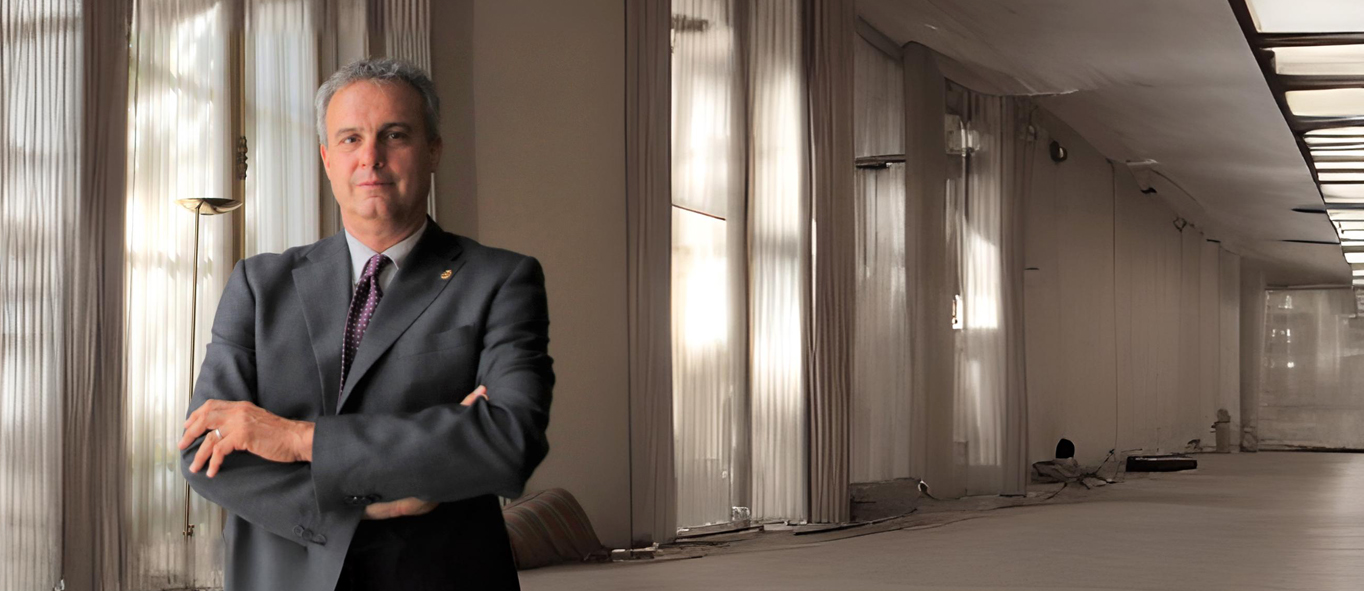Eduardo Rojas, Scientific-Technical Director of the Horizon Europe project ‘INFORMA’ and member of the ICTvsCC Group of ITACA-UPV, has recently intervened in mass media to share his experience in forest management, drought and climate change.
Within the framework of the European project INFORMA FORESTS, which leads the ICTvsCC, the ITACA researcher has explained to the public the need to implement sustainable forest management practices that optimise carbon sequestration, ensure a sustainable supply of forest products, protect biodiversity and maintain ecosystem services in climate change scenarios.
‘Our goal is to develop forest management solutions and practices that improve the state of our forest ecosystems, using technological tools such as satellite imagery, data mining and climate modelling with participatory approaches to bridge the gap between the field, science, policy, carbon markets and society at large,’ says Eduardo Rojas.
Forum of the New Rurality
In this context, he recently participated in a meeting held on 5 July in the Peñagolosa Mountain, promoted by the Forum for the New Rurality, and the town councils of Xodos and Vistabella del Maestrat. In this event, Rojas and other representatives of the rural, agricultural and forestry Valencian discussed the need to change the focus from ‘protection’ to ‘`proactive management of forests, due to the present excessive density of forest.

For this reason, together with Rafael Delgado, also a professor at the UPV, they published an article in the newspaper Levante-EMV with the main reflections and issues discussed at the meeting, highlighting the serious climatic situation facing the region after 2 years of intensive draught.
‘With an annual rainfall of just 100 mm in many areas, which is 20-25% less than the usual level, the problems for forests are inevitable,’ the article states.
Indeed, the hyper-density of vegetation in forests, exacerbated by rural abandonment and the high regenerative capacity of vegetation, creates intense competition for scarce water resources, increasing the vulnerability of trees to secondary pests such as Tomicus, which attack when trees are already weakened.
«This excess biomass not only complicates access to water for plants, also increases the risk of forest fires, especially with the presence of dead trees highly burnable. Active forest management, as promoted in the INFORMA project, is presented as a necessary solution to mitigate these risks, improve water use efficiency and reduce the fuel load in forest», said the UPV professors.
In addition, Eduardo Rojas was interviewed by Cadena SER-CV to analyse the situation of our forests, where he stressed the need to encourage a policy that favours the recovery of fire-break crops, such as vines, which are the least combustible crop in summer.
‘Vines are the perfect firebreak: they remain green during the summer, are highly resistant and contribute to improving soil resilience and counteracts rural decline. Moreover, they can boost wine tourism in the region,’ said the UPV professor.
- Paper in Levante-EMV: https://www.levante-emv.com/opinion/2024/07/21/causes-efectes-respostes-sequera-dels-105885571.html
- Interview in Cadena SER-CV: https://cadenaser.com/comunitat-valenciana/2024/07/20/la-sequia-que-esta-matando-pinos-en-los-bosques-valencianos-puede-ser-una-oportunidad-radio-valencia/



